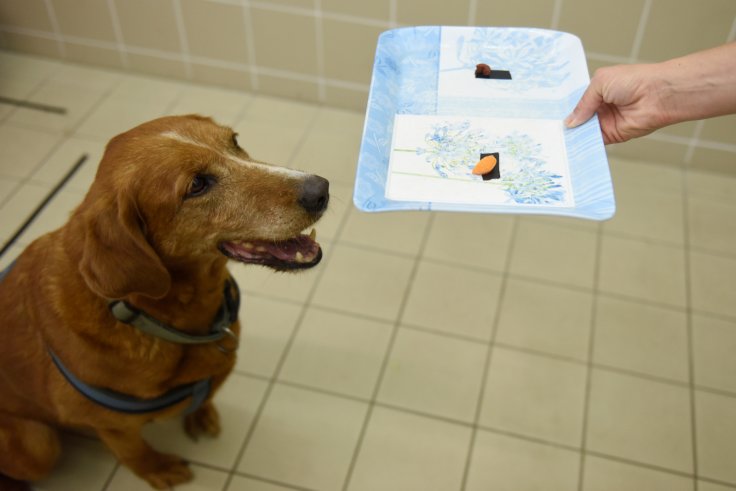
How will you explain your food habit? Maybe you know what kind of food you like the most or what are those items that attract you but, on the same time you don't want to consider the fact that particular food could increase your weight. So, in that case, your dog's behaviour could help you to understand whether you are a normal weighted person or you need to reduce lots of kilos.
Dogs are living as a part of the human society since ancient days but now, with the help of technologies and studies, day by day people came to know the importance of them. This time scientists in Budapest, Hungary, asked some volunteers to bring their dogs and divided into two groups, based on their weight, which means while one group will have only the average weighted dogs and the other group will include overweighted pets.
The researchers then brought two bowls, while one was filled with less interesting and low-value food items, the other bowl had high value, tasty and exciting foods. Then the owners of those pets were asked to command them to wait for both the bowl to arrive. The idea behind providing both the bowls together was to give a change to those dogs to inspect both bowls before making any decision.
The study conductors later found that both types of dogs behaved differently in terms of dealing with foods. Which is quite similar to normal and overweight human behaviour. In that study, which was published in the journal Royal Society Open Science, researchers stated that even though they thought that obese dogs will prefer high-value food, the results were different, as those dogs decided not to wait for the exciting food and started to have the first bowl with casual food as soon as they saw it.
The test leader Orsolya Torda said, "If a situation is uncertain and they cannot find food, the obese dogs are unwilling to invest energy to search for food - for them, the main thing is to find the right food with least energy involved."
Later, the researchers stated that overweight humans might also prefer immediate food instead of waiting for a better tasting food to come. The authors of the paper from Budapest's ELTE University said that the results of the study suggested that this pets could be used in future as a model of research into the causes and psychological impacts of human obesity.
But, still, a lot of research is required to get the ultimate conclusion, as the obesity issues in humans and dogs or animals are very complicated. The medical world is also not 100 percent sure about the same behavioural presence as dogs in humans.
People know that dogs are capable to detect various cancers, including prostate cancer, colorectal cancer and melanoma. But, there are also some dogs who were trained to detect diabetic patients. A report published by National Geographic in 2016 has stated that during the training session the diabetic alert dogs were given rewards after they "sniff the scent of low blood sugar, provided by patient saliva samples." Dogs are also used in some specific laboratories to detect ovarian cancer patients.
However, as per a study published in 2013, Luis Dominguez-Ortega, M.D., PhD said in the report that two dogs were trained by the scientists to detect narcolepsy patients and by using sweat samples those trained dogs successfully found 11 out of 12 cases with such illness.








